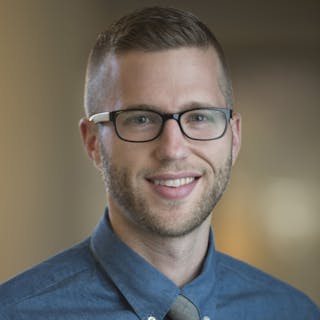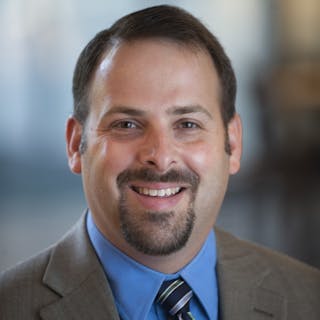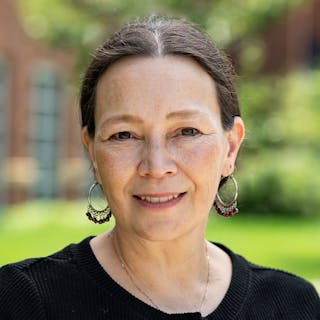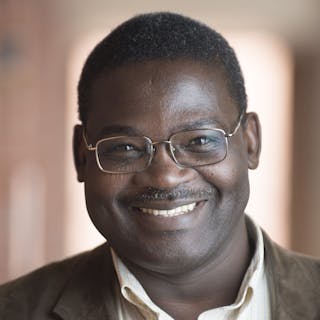


Become who you’re meant to be. While earning a B.A. in Social Studies Education 5-12, you’ll prepare for a career teaching social studies. You’ll combine coursework in history and the social sciences with training in teaching from Bethel’s education department, including a student teaching experience in an area school. If you want to work with younger students, you can major in elementary education and add a licensure in social studies (5-8). No matter your path, you’ll reach your full potential to go into your community and serve students.
Contact us
Request info
Interested in learning more about Bethel's B.A. in Social Studies Education 5-12? Fill out this simple form and we'll send you more information soon.
Connect with a counselor
They’ll answer your questions, connect you with professors, and help you find the right time to visit campus. They’ll be there every step of the way to help make applying to Bethel as smooth as possible.
Courses and skills
What skills will I develop?
By majoring in social studies education, you’ll develop the skills to be a well-rounded person, not just a well-rounded student. And you’ll experience a variety of great courses where you’ll explore big questions and apply them to modern issues.

A strong historical base
As you study human history, your knowledge will be deepened by the integration of faith and modern application.
Prepared to teach
You’ll gain extensive training in teaching and you’ll student in an area school. You’ll be equipped to share your love of social studies with new generations.
Skills for any career
You'll learn to think critically, communicate clearly, and make a lifelong impact on young people.
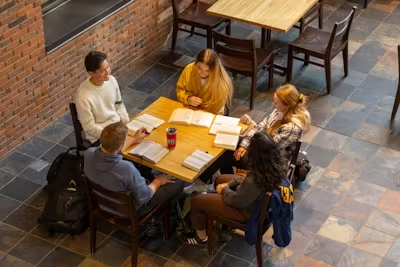
Academic plans
Map out your time at Bethel—from day one to your diploma. Your course schedule is designed to help you grow, gain skills, and become who you’re meant to be.
Learning opportunities
What experiences will I have?
Hands-on learning is at the core of all Bethel majors. That means you’ll find numerous opportunities to get involved, apply what you’ve learned, and gain experience. And Bethel’s size and vibrant community will allow you to pursue ways to get involved right away.

Study abroad
As a social studies education major, you’ll find opportunities to study around the world over a full semester, January session, spring break, or summer. Recent students have studied in The United Kingdom, China, India, Egypt, Israel, Belgium, and New Zealand.

Experience in schools
From your first education course through student teaching, you’ll spend several hours each week in local schools. You’ll get to work with experienced teachers in a variety of settings, giving you the chance to put what you’ve learned into practice and build connections that will serve you well in your career.

Clubs and organizations
You can participate in Model United Nations, Pi Sigma Alpha—the national political science honorary—and more. You can also join the Bethel Student Educator’s Association, a student-led academic club that builds community in the education department.
Real-world impact
What can I do with a social studies education degree?
As you study social studies education, you’ll become the person you’re meant to be and become equipped for a life of purpose in almost any field.
Teach at the middle and high school level
You’ll be equipped to teach subjects like American and world history, government and civics, geography, psychology, and economics at the
Administration
You be prepared to pursue a graduate degree in teaching or doctoral programs to become a principal or superintendent, and you could pursue work in higher education.
Education-related roles
Beyond teaching, you can pursue a variety of roles—like coaching, curriculum design, and special education.
Graduate school
You’ll be prepared to take to continue your studies at top graduate schools. Our graduates consistently score well on graduate school entrance exams.
Skills for any field
If your career takes you out of education, you’ll have the strong, writing, communication, and critical-thinking skills to serve in almost any field.

Start your journey
Explore Bethel for yourself
Visiting campus is the best way to learn about Bethel and our majors. As you try out academic and campus life at Bethel, you can attend a class, chat with students, meet professors and coaches, tour campus, and get a taste of life in our program.
Faculty mentors
Meet your professors
You’ll learn alongside faculty who are distinguished scholars and faithful Christians. They’ll know you by name and invest in your success. Professors are accessible and usually have an open-door policy so you can stop by with questions, and you’ll often find students gathered in the “HiPPos Suite.”
Department of History, Philosophy, and Political Science
Location
Contact
Student Support
Your support team
At Bethel, you’ll experience a community where you belong. And that means you’ll be able to access numerous tools for your academic success—tutoring, mentors, study help, and more.
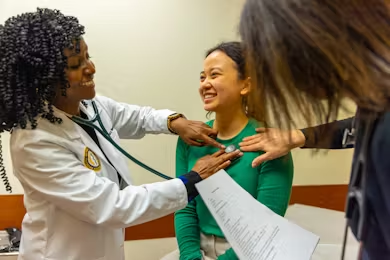
Career coaching and preparation
A dedicated team is here to empower you to lead a purposeful life. Career coaches will help you build a resume, pursue internships and jobs, and provide support at every step of the way.

Academic advising
No matter your goals, you’ll find support from your advisor. They’ll help you plan your courses and will provide support as you complete your degree and start a successful career.
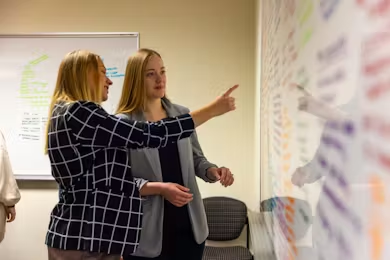
Tutoring and academic support
The Academic Enrichment and Support Center (AESC) will be your first stop for academic support. You’ll find help in building study skills, academic counseling, and more.
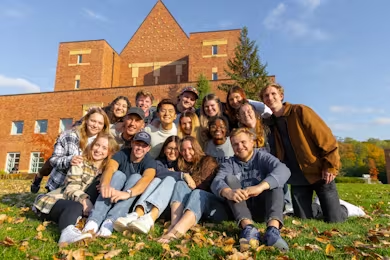
Faith formation
As you develop your faith, you’ll have support from our Campus Ministries team. From Chapel to Bible studies, you’ll have numerous opportunities to explore and grow in your faith.

A path with promise
Clear price. Clear outcomes.
Know what your education costs—and where it’s taking you. You’ll start with a clear price so you can focus on what truly matters: your education and your future. And you’ll graduate with confidence through the Bethel Career Commitment, which includes built-in career coaching and additional support for eligible graduates who still need help.

Become A Bethel Student
Apply now
You belong at Bethel. If you're ready to see who you could become, start your free application today.
Find your fit
Explore related programs
Bethel’s small size, strong community, and liberal arts focus allows you to personalize your education by adding additional majors or minors. In fact, about 30% of students double major—and many pursue degrees in vastly different disciplines.



Explore the full lists:








